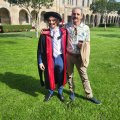University of Queensland research has found fishermen’s expertise contributes to better designed marine reserves.
Researchers from UQ’s Centre for Applied Environmental Decision Analysis said while the research was conducted in relation to marine reserve planning in California, it could have applications here in Australia as well.
Lead author of the study Carissa Klein said UQ, in conjunction with a US-based conservation organisation Ecotrust, has been comparing the effectiveness of marine reserve designs in meeting the objectives of California’s Marine Life Protection Act (MLPA) Initiative, such as protecting marine habitats and minimising impacts on coastal communities.
“Our work is informing the marine reserve design processes in California and around the world to better protect biodiversity while minimising impact to fishermen,” Ms Klein said.
“But our approaches can be applied towards designing marine reserves in Australia in places like Moreton Bay and even across the entire continent, a processes being conducted by the Federal environment department.”
Researchers used a conservation planning tool called Marxan, developed by Dr Ian Ball and Professor Hugh Possingham, to design marine reserves that met the Initiative’s habitat protection targets, including ecosystems such as rocky reefs and kelp forest, while minimising socioeconomic impacts.
Ms Klein said these scenarios were then used to evaluate each of the four designs submitted for the central coast.
“We found the networks designed by fishermen were most efficient at meeting the Initiative’s habitat objectives with the lowest impact on fisheries,” she said.
“The findings highlight the tangible benefits both of including fishermen’s local knowledge in the marine protection process and of utilising an optimisation tool like Marxan in support of the actual design.”
The research was recently published in the first edition of Conservation Letters, a journal of the Society for Conservation Biology, which focuses on research with significant implications for the conservation of biological diversity.
Media: Carissa Klein (07 3365 3539) or Andrew Dunne at UQ Communications (07 3365 2802 or 0433 364 181).



